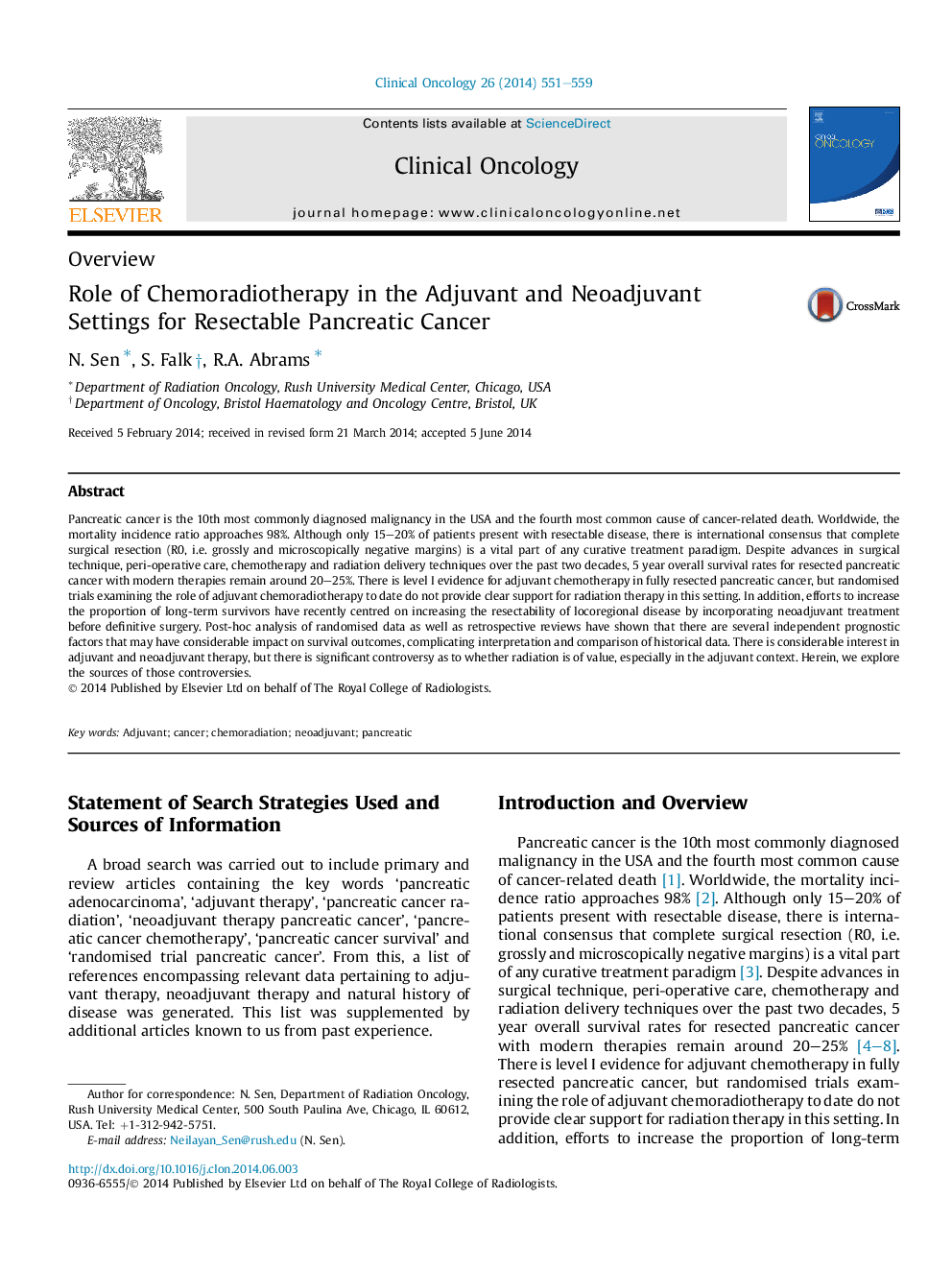| Article ID | Journal | Published Year | Pages | File Type |
|---|---|---|---|---|
| 5698553 | Clinical Oncology | 2014 | 9 Pages |
Abstract
Pancreatic cancer is the 10th most commonly diagnosed malignancy in the USA and the fourth most common cause of cancer-related death. Worldwide, the mortality incidence ratio approaches 98%. Although only 15-20% of patients present with resectable disease, there is international consensus that complete surgical resection (R0, i.e. grossly and microscopically negative margins) is a vital part of any curative treatment paradigm. Despite advances in surgical technique, peri-operative care, chemotherapy and radiation delivery techniques over the past two decades, 5 year overall survival rates for resected pancreatic cancer with modern therapies remain around 20-25%. There is level I evidence for adjuvant chemotherapy in fully resected pancreatic cancer, but randomised trials examining the role of adjuvant chemoradiotherapy to date do not provide clear support for radiation therapy in this setting. In addition, efforts to increase the proportion of long-term survivors have recently centred on increasing the resectability of locoregional disease by incorporating neoadjuvant treatment before definitive surgery. Post-hoc analysis of randomised data as well as retrospective reviews have shown that there are several independent prognostic factors that may have considerable impact on survival outcomes, complicating interpretation and comparison of historical data. There is considerable interest in adjuvant and neoadjuvant therapy, but there is significant controversy as to whether radiation is of value, especially in the adjuvant context. Herein, we explore the sources of those controversies.
Related Topics
Health Sciences
Medicine and Dentistry
Oncology
Authors
N. Sen, S. Falk, R.A. Abrams,
